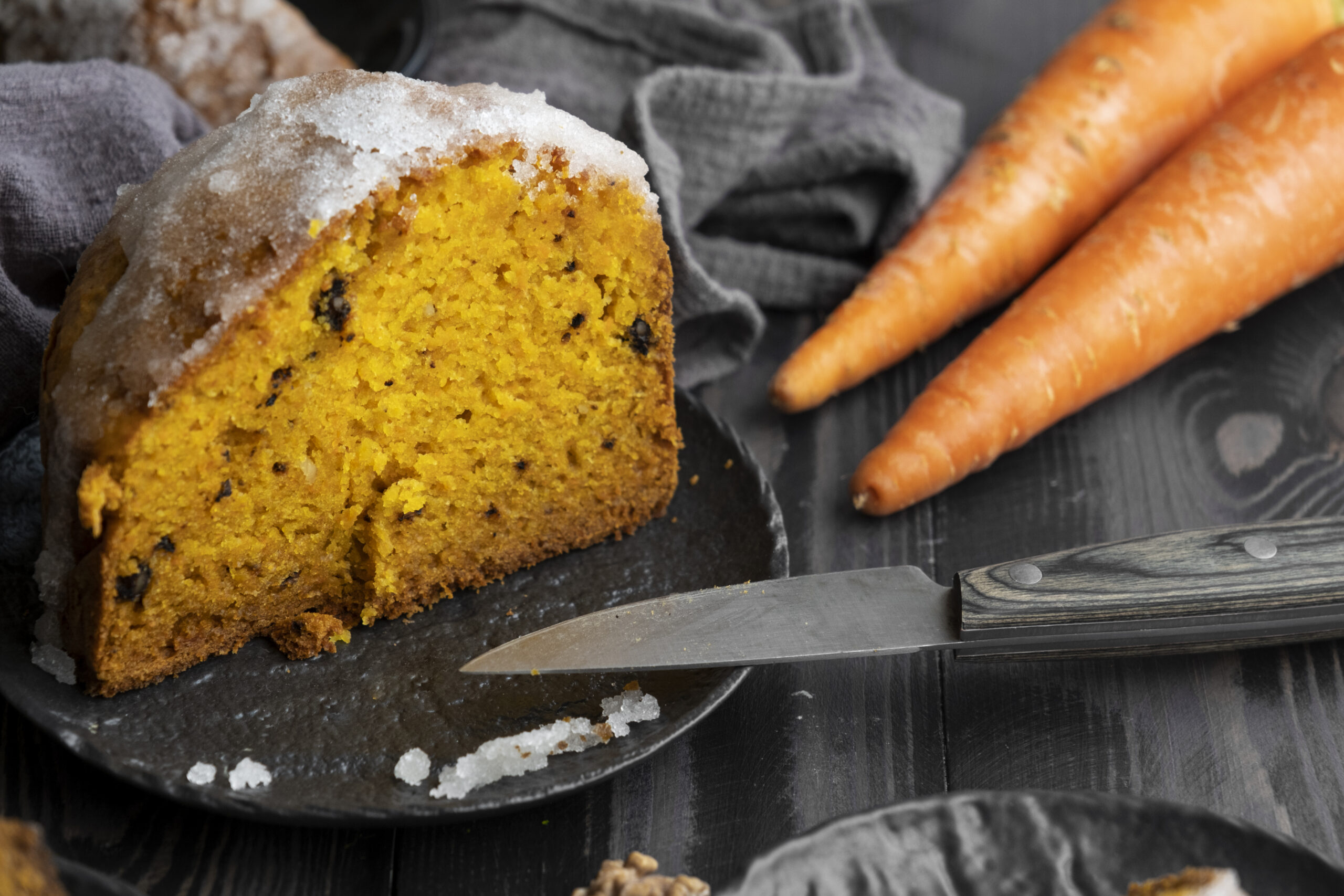Carrot cake is celebrated for its moist texture and rich flavor, largely due to the use of oil rather than butter. Understanding why oil is the preferred choice over butter can help bakers perfect their carrot cake, making it deliciously moist and delightful.
Introduction to Ingredients in Baking
Carrot cake has become a favorite for its moisture and dense texture. The key ingredients typically include:
- Flour
- Eggs
- Sugar
- Carrots
- Oil
Both butter and oil play pivotal roles in baking, but they bring different properties to the products they help create.
Butter vs. Oil in Baking: Which is Better for Carrot Cake?
In baking, choosing between butter and oil significantly impacts the cake’s texture, flavor, and shelf life. Butter is known for its rich flavor and its ability to aerate during creaming. However, oil is the go-to choice in recipes like carrot cake where prolonged moistness is crucial. Using oil results in:
- A cake that remains moist and tender much longer than its butter-based counterparts
- A more consistent texture due to oil’s uniform mixing with the batter
Oil-Based Moisture: The Key to Perfect Carrot Cake
Oil remains the top choice for carrot cake primarily because of the moisture it provides. Unlike butter, oil effectively coats the proteins in flour, preventing the formation of gluten, which can toughen cakes. Oil ensures:
- Moisture distributes evenly throughout the cake
- The texture stays softer, which is ideal for dense cakes like carrot cake
Texture Considerations: Using Oil in Carrot Cake for Best Results
The texture of a carrot cake is crucial; it should be dense yet moist, a balance best achieved with oil. Many bakers choose oil over butter because it helps produce a lighter, fluffier cake. Discussions in various baking forums confirm the preference for oil because it:
- Enhances the lightness and airiness of the cake’s texture
- Improves moisture retention, ensuring each slice is rich and satisfying
Explore different variations and flavors of carrot cake in our latest post, “Recipe for Jamaican Carrot Cake: A Slice of Caribbean Heaven”.
FAQs on Carrot Cake Baking
- Why do bakers prefer oil over butter in carrot cake? Oil provides superior moisture retention, which is essential for keeping the cake moist.
- Can you substitute butter for oil in carrot cake? Yes, but it will change the texture and might result in a denser cake.
- What effects do substituting butter for oil have on flavor and texture? Butter offers a richer flavor but can make the cake heavier and less moist.
Detailed Look at Recipe Variations: Exploring Vegetable Oil in Carrot Cake
Using Different Types of Oil
The type of oil can affect the cake’s flavor. While vegetable oil is neutral, olive oil can add a subtle fruity undertone that complements traditional carrot cake spices such as cinnamon and nutmeg. Oils to consider include:
- Vegetable oil for a neutral taste
- Olive oil for a hint of fruitiness
For further reading on the benefits of using oil in baking, consider visiting Olive Oil Times. For those interested in exploring different baking ingredients and their impacts, check out our guide on Pumpkin Banana Loaf, which also uses alternative baking oils.
Experimentation in Recipes
Adventurous bakers often experiment with their recipes to tweak texture and flavor. Popular substitutions include:
- Applesauce or yogurt to reduce fat content
- Adding nuts or pineapple for extra flavor and texture
For more insights into baking with different oils, visit King Arthur Baking.
Conclusion and Best Practices: Oil for Baking Carrot Cake
To conclude, using oil in carrot cake is crucial for maintaining its hallmark moist texture. Here are some tips for baking the perfect carrot cake:
- Choose the appropriate type of oil based on the desired flavor profile
-
By understanding the role of oil in baking, you can enhance your baking skills and consistently enjoy the perfect slice of carrot cake.

